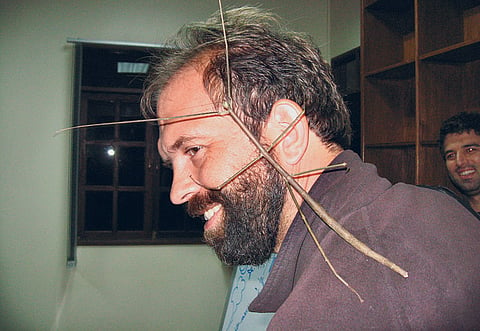Meet a slug that shoots love darts
Explorers find 123 new species in Borneo rainforest

Kuala Lumpur: A lungless frog, a frog that flies and a slug that shoots love darts are among 123 new species found in Borneo since 2007 in a project to conserve one of the oldest rainforests in the world.
A report by the global conservation group WWF on the discoveries also calls for protecting the threatened species and equatorial rain forest on Borneo, the South China Sea island that is the world's third-largest and is shared by Malaysia, Indonesia and Brunei.
The scientists' discoveries include the world's longest known stick insect at 56.7 centimetres, a flame-coloured snake and a frog that flies and changes its skin and eye colour. In total, 67 plants, 29 invertebrates, 17 fish, five frogs, three snakes and two lizards and a brand new species of bird were discovered, said the report.
"The challenge is to ensure that these precious landscapes are still intact for future generations," said the report released yesterday.
The search for the new species was part of the Heart of Borneo project that started in February 2007 and is backed by the WWF and the three countries that share the island.
The aim is to conserve 220,000 square kilometres of rainforest that was described by Charles Darwin as "one great luxuriant hothouse made by nature for herself".
Explorers have been visiting Borneo for centuries, but vast tracts of its interior are yet to be biologically explored, said Adam Tomasek, leader of WWF's Heart of Borneo project.
"If this stretch of irreplaceable rain forest can be conserved for our children, the promise of more discoveries must be a tantalising one for the next generation of researchers to contemplate," he said.
Borneo is known as a hub for monster insects, including giant cockroaches.



